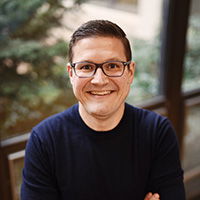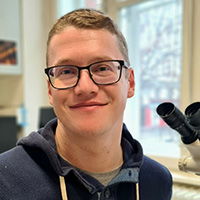Webinar
How to manage your data with an electronic lab notebook– Takeaways from academia
Webinar panelists:


Webinar
Webinar panelists:


We have all encountered situations where data became inaccessible due to disorganization, outdated storage media (e.g., paper, floppy disk, USB drives), staff/student turnover, or even accidents and natural disasters. This can lead to delay in publication, difficulty in knowledge transfer, wasted time and funding to repeat experiments, and possibly not meeting the data management & sharing requirements of many funding agencies.
You can avoid such situations by using an accessible and searchable digital platform such as an electronic lab notebook to manage data. An ELN can also help you connect your data – from protocols, inventories, to results – to give you a better picture of your research activities.
In this webinar, we have invited speakers to share their own experiences of managing data with the SciNote ELN – from selection, implementation, data migration, to incorporating the ELN into day-to-day use. Join us to explore how you can use an ELN to organize your research, and make headway toward better data management.
This webinar will be hosted by Theresa Liao, Content Specialist (SciNote).
In this webinar, the panelists will discuss:
Dr. Tykocki’s research focuses on urinary bladder physiology, with specific emphasis on the mechanisms responsible for the sensation of bladder fullness. He employs a multi-disciplinary approach, including biochemical, pharmacological, physiological and genetic tools, to understand how the bladder muscle, nerves, vasculature and urothelium communicate to impact bladder function. Dr. Tykocki’s scientific training explored vascular smooth muscle biology, physiology and pharmacology, specifically in terms of calcium signaling pathways as regulators of smooth muscle contractility. His fields of expertise include myography, receptor pharmacology, confocal microscopy, fluorescence microscopy, calcium imaging, western blotting, immunofluorescence, and instrument design/fabrication.
Dr. Markus Schosserer has been a principal investigator at the Medical University of Vienna, Center for Pathobiochemistry and Genetics, Austria, since July 2022. He received his Ph.D. in Biotechnology from the University of Natural Resources and Life Sciences, Vienna, in 2012. His research interests lie in biogerontology, skin aging, cellular senescence, and RNA biology, particularly RNA modifications, ribosomes, and protein translation. Markus Schosserer co-authored 43 papers and presented his work at several national and international conferences and seminars as an invited speaker. He won several poster and talk awards and collaborates actively with researchers in aging research and RNA/ribosome biology.
14 day free SciNote Premium Trial